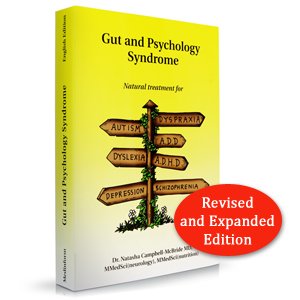Feature photo by irreplaceablemartina
I wanted to share this important article with you, as it really lines up with our recent focus in our health section. So many people aren’t aware of the devastation happening inside their bodies and those of their children. Please read through the article and let us know what you think. I haven’t read the book yet, but I’m getting it right away!
 This article was brought to you by Dr. Mercola.Founder of the world’s #1 natural health site, he gives you the low-down on cholesterol. Discover why you actually need Cholesterol in this FREE report.
This article was brought to you by Dr. Mercola.Founder of the world’s #1 natural health site, he gives you the low-down on cholesterol. Discover why you actually need Cholesterol in this FREE report.
“Your Gut-Brain Connection –
Could it Be Hijacking Your Health?”
Today we live in a world of unfolding epidemics that appear to have symptoms and underlying causes which mysteriously overlap.
Have you or your child been touched by one of these rapidly growing conditions? Consider these questions…
- Do you or your child have a history of gastrointestinal (GI) discomfort, digestive issues, food allergies or food intolerances?
- Have you been diagnosed with depression, psychosis, or schizophrenia?
- Do you or your child suffer with dyslexia, dyspraxia, ADD, ADHD, or other learning disability?
- Do you or your child have a history of urinary tract infections or acne that was once treated with antibiotics, and you later developed abdominal pain, bloating, and symptoms of Irritable Bowel Syndrome (IBS)?
- Do you suffer from chronic cystitis, mood swings, anxiety, poor memory or difficulty with focus and concentrating?
- Did you or your child ever suffer from colic, loose stools, constipation, eczema, or asthma, and got treated with antibiotics for ear or upper respiratory infections?
- Do you or a loved one have a history of painful or irregular menstruation accompanied by migraines?
- Did your child appear “normal” in his or her first year of life, but then become autistic, hyperactive, aggressive, or develop other abnormal behaviors?
- Were you or your child bottle-fed as an infant and prone to colds and infections?
- Do you or a loved one suffer from an immune disorder?
In her book Gut and Psychology Syndrome, Dr. Natasha Campbell-McBride explains how toxicity in your gut can flow throughout your body and into your brain, where it can cause symptoms of autism, ADHD, dyslexia, dyspraxia, depression, schizophrenia and other disorders.
And that’s not all… Dr. Campbell-McBride believes gut toxins can show up in both children and adults in the form of digestive and immune disorders.
The Raging Epidemic of “Mental Disorders”
According to Dr. Campbell-McBride, MD, a neurologist, we’re experiencing an epidemic of so-called mental disorders that include autism, dyslexia, dyspraxia, Attention Deficit Disorder (ADD) and Attention Deficit Hyperactivity Disorder (ADHD).
Within the last twenty years we’ve seen a 40-fold increase in newly diagnosed cases of autism. Today, one child in 150 is diagnosed as autistic. It’s a condition that ravages families as well as the life of the affected child. Dr. Campbell-McBride knows – her own child was diagnosed with autism over fifteen years ago.
ADD and ADHD impact most every classroom in the U.S., Canada, Great Britain, and Australia, where, according to Dr. Campbell-McBride, one child in three is diagnosed with either of these conditions. They can often disrupt class time with uncontrollable behavior and short attention spans.
Dyslexia is a disorder where the child cannot write or read with ease, and about half also have dyspraxia with poor fine and gross motor skills. These children can find it challenging to fit in socially, make friends, and excel at sports.
Here’s the interesting thing… according to Dr. Campbell-McBride, when you take a closer look at all these individuals, you realize that they are also physically ill.
Most of these children (and adults) with so-called mental disorders also suffer from digestive disorders, asthma, eczema, frequent ear and chest infections, and allergies to foods, chemicals, animals, and much in their environment. They’re unable to digest and absorb their food properly and typically have severe nutritional deficiencies.
Dr. Campbell-McBride believes that these nutritional deficiencies prevent the brain and immune system from functioning normally.
How Your Gut Flora Impacts Your Health

According to Dr. Campbell-McBride, 84 percent of your immunity is located in your gut wall. And if you don’t have healthy gut flora, your immune system simply can’t function optimally.
What does healthy gut flora look like? In a healthy individual with normal gut flora, you’ll find about 500 different species of disease-causing, bad bacteria and fungi right along with good, beneficial bacteria. As long as the good bacteria reign, they’ll keep the bad ones from harming you.
There are many things that can wipe out your beneficial bacteria and disturb your gut flora, including stress, infections, antibiotics, poor diet, and prescription drugs such as contraceptive pills and steroids.
Dysbiosis is the condition that results when gut flora becomes damaged. Pathogenic bacteria, viruses, yeast and fungi flourish and grow out of control, often leading to a rise in allergies and autoimmune conditions.
Some of the physical conditions that Dr. Campbell-McBride believes are connected to abnormalities in gut flora include multiple sclerosis, chronic fatigue syndrome, lupus, fibromyalgia, rheumatoid arthritis, and type 1 diabetes.
Toxic Gut = Toxic Brain?
In her book, Gut and Psychology Syndrome, Dr. Campbell-McBride describes how abnormal gut flora, or GAPS, can affect your brain – and your entire body.
As the growth of disease-causing species of bacteria, yeast, viruses and other microbes rages unchecked in the digestive tract, devastating consequences can occur.
The gut, which was once a source of nourishment for the body, now transforms into a cauldron of toxicity.
As food enters into the gut, this now abnormal mass of microbes digests it, creating hundreds of toxins that flow into the bloodstream through a damaged gut wall.
These toxins travel to the brain and latch onto different brain structures. Depending on which parts of the brain are affected, the symptoms can vary.
Dr. Campbell-McBride believes autistic children are born with normal brains and normal sensory organs.
Their brains become clogged with these toxins usually in the second year of life, often when breastfeeding stops and exactly when vital communication functions, and social and motor skills develop.
For the autistic child, sensory information turns into a noise – a “mush.” Some sounds can hurt. Some can’t be heard at all. Some voices or noises sound like they’re coming from underwater. Considering how garbled all the sensory input becomes to an autistic child, there’s little wonder they develop the way they do.
Where Does Your Gut Flora Come From?
You may be wondering… how can an infant develop such troublesome gut flora, especially if they haven’t yet been exposed to antibiotics, prescription drugs and junk food?
The answer is simply – from mom.
During birth, as a baby goes through the birth canal, he or she swallows the first mouthfuls of bacteria and that becomes the baby’s gut flora.
Before the prolific use of antibiotics and birth control pills, most women had normal, healthy vaginal flora and that is what they passed on to their children.
Today, both of these greatly affect the quality of a mom’s gut flora – especially contraceptive pills, which have a particularly devastating effect.
Dr. Campbell-McBride points out that abnormal gut flora may not always be the mother’s fault. There are times when a woman’s flora may be perfectly healthy, but the man’s gut flora is abnormal. During intercourse, men share their bodily flora with women and that can have an impact on their babies’ gut flora.
What Happens if Abnormal Gut Flora Escapes Detection…
A newborn depends upon normal healthy gut flora for the development of immune function. Without normal gut flora, the baby becomes immuno-compromised.
This can open the door for eczema, colic, asthma, congestion, and other allergic reactions. Because the immune system isn’t working well, the mucus membranes start overproducing mucus that can lead to frequent ear and chest infections.

And so begins the vicious cycle of infections, antibiotic treatments, re-infections, and more antibiotics.
Antibiotics wipe out any precious remaining beneficial bacteria GAPS children may have. Dr. Campbell-McBride considers antibiotics a “double whammy” for their already compromised immune systems.
But it doesn’t end there. The average infant then starts receiving vaccinations – and lots of them.
While Dr. Campbell-McBride doesn’t necessarily feel vaccinations independentlycause these conditions, she does believe they are inappropriate for immune-compromised GAPS children as they can serve to catalyze damage in the nervous system of children with compromised gut flora.
For them, even one vaccine can do serious damage and it may be the “straw that breaks the camel’s back” and triggers nervous system damage.
She estimates that 30 percent of the children in her clinic started their autistic symptoms after receiving either the MMR or DPT vaccination.
Next in the line of gut flora insults comes diet – the introduction of wheat and pasteurized dairy products. These foods, along with other processed foods, all feed the abnormal flora in the gut. By now, the gut dysbiosis is well developed, sending toxins throughout the child’s body. The gateway to learning disabilities is now wide open.
Obviously, if nothing is done to correct the abnormal gut flora in infancy or childhood, the child grows into his or her teen years and beyond still harboring – and suffering from – dysbiosis and whatever symptoms they carry into adulthood, both mental and physical. In other words, GAPS children become GAPS adults.
There is Hope… And There’s Much You Can Do
In Dr. Campbell-McBride’s book, Gut and Psychology Syndrome, she describes what can be done for gut dysbiosis – and ninety percent of it falls on diet.
Remember the list of questions we went through at the very beginning? No matter what symptoms you or your child may be experiencing, diet is the place to start. Whether it’s something mental or physical, Dr. Campbell-McBride believes its root cause lies in the gut, so that’s where treatment must begin.
Every so-called psychological and mental disorder is a digestive disorder at its core – whether it is schizophrenia, bipolar, obsessive-compulsive behavior, substance abuse, depression or just a cranky teenager – you must first look at the digestive system.
Dr. Campbell-McBride runs the Cambridge Nutrition Clinic in the UK where she has become recognized as one of the world’s leading experts in treating children and adults with learning disabilities and other mental disorders, as well as children and adults with digestive and immune disorders.
In 2004 she published the original edition of her Gut and Psychology Syndrome: Natural Treatment Of Autism, ADHD, Dyslexia, Dyspraxia, Depression and Schizophrenia, in which she explores the connection between the patient’s physical state and brain function.
The book gives comprehensive details of the GAPS Nutritional Protocol that over the years has proved highly successful in treating patients with not just learning disabilities and other mental problems, but physical issues as well.
The GAPS Nutritional Protocol represents a revolutionary method of healing with food by effectively combining essential fatty acids, probiotics, fermented vegetables, vitamins and minerals, digestive support, healthy oils and fats, and fresh, unprocessed cooked and raw foods.
Where Do You Begin?
First and foremost, read the book Gut and Psychology Syndrome by Dr. Natasha Campbell-McBride. It is very important to fully understand the GAPS Diet before you start. If you start the diet incorrectly, you could experience unnecessary diarrhea, constipation, severe die-off symptoms, and hunger pains.
Here are a few general guidelines from Dr. Campbell-McBride for getting the most out of the program. Be sure to read the complete details in her book.
- GAPS patients should follow the Introduction Diet before going into the Full GAPS Diet. Depending on the severity of the condition, you can move through the Introduction Diet as fast or as slow as your condition permits.
- If you or your child suffers from serious digestive symptoms like diarrhea, abdominal pain, bloating, constipation, you’ll want to follow the Introduction Diet fully. The GAPS Introduction Diet reduces symptoms quickly and initiates the healing process in the digestive system.
- If you or your child deals with food allergies and intolerances, be sure to go through the Introduction Diet to heal and seal your gut lining. When your gut lining is damaged by abnormal flora, you can have what’s known as a “leaky gut.” Foods aren’t digested properly and they can ignite an immune system response when absorbed.
- Those without serious digestive problems and food intolerances can move through the Introduction Diet quite quickly. However, please do not be tempted to skip the Introduction Diet and go straight into the Full GAPS Diet. To do so could jeopardize your gut and body’s healing processes.
Please be sure you understand the complete process before you begin. To get the best benefits and the deepest healing, follow the book carefully.
The Newly Revised Edition of Gut and Psychology Syndrome…
Now Available for Less at Mercola.com

The 2010 revised edition of Gut and Psychology Syndrome (which was originally a 268-page text back in 2004) now contains nearly 400 pages, with additional information that includes:
- All original chapters have been revised and updated
- New chapter on Epilepsy
- New chapter on Eating Disorders and Failure to Thrive
- All the elements of the GAPS diet – the GAPS Introduction Diet, the Full GAPS Diet and a section on how to come off the diet
- Specific dairy advice
- The newest research about fats and GAPS
- Recipes section expanded to include new recipes
- What you need to know about having a baby – pre-conception, during pregnancy, post-partum and the new baby
And now you can order this revised edition directly from Mercola.com!
You can have the expert advice of Dr. Natasha Campbell-McBride at your fingertips. And you can finally start to enjoy all the benefits that can be yours when you heal your digestive system.
Dr. Campbell-McBride’s GAPS program has already helped many with a diverse range of symptoms. And now it’s your turn.
Order your book today and get started on your journey to wellness.
 Women's Life Link Be Well, Be Happy, Be YOU!
Women's Life Link Be Well, Be Happy, Be YOU!





